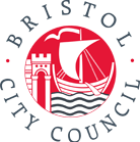COVID-19 has worsened the inequalities experienced by Bristol's Somali community
- 30th November 2020
Bristol Somali Youth Voice and the Bristol Somali Forum have produced a report looking at the impact of COVID-19 on Bristol’s Somali community.
The report includes case studies and survey results which reveal how the pandemic has made the challenges and inequalities facing Somalis in Bristol worse.
Although the survey included responses from only 49 participants, the insights that it gathered, along with the case studies, provide a deeper understanding of the issues faced by people within the community.
The report reveals that in the areas of healthcare services and information, economic impact, housing and education and mental health; the impact of COVID-19 has been disproportionate to the Bristol Somali community.
The following issues were highlighted in the report:
- the community has an ingrained lack of trust in the NHS and fear of hospitalisation with COVID
- miscommunication or lack of information around COVID and health and care services due to language barriers
- risk of job loss and levels of high unemployment within the community
- people working in low-paid jobs risking their health because they cannot afford to not work
- lack of space and privacy within the home and no access to safe, green outdoor spaces
- no childcare options or alternative support
- lack of resources, time and energy to support children’s education and home schooling
- high levels of mental health deterioration, loneliness and isolation – especially amongst disengaged elders in the community
- stigma around mental health and the inability to discuss mental health issues openly within the culture and community
“This (the pandemic) has shown us how weak we are, as humans, and as a nation.”
The report aims to provide data and share people’s experiences so that services can better understand the needs of the Somali community in Bristol and therefore adapt and improve them.
It is also important to highlight the hard work that has had a positive impact and how the community has come together to support each other.
For example, a group of seven local Somali-led organisations have been working on engaging with and supporting vulnerable groups and elders who are shielding or isolating.
Bristol Somali Youth Voice have set up a task force to help people with shopping and prescriptions if they are vulnerable or isolating. They have also created bilingual communications on official guidelines and NHS advice to ensure that people have access to information even if English is not their first language.
In order to deliver successful and culturally appropriate services, the report recommends that centralised services should link in more with community-based initiatives and local responses that are currently better at reaching out to disengaged vulnerable groups.
Read the full report here.
Image by Mohamed Sayaqle






